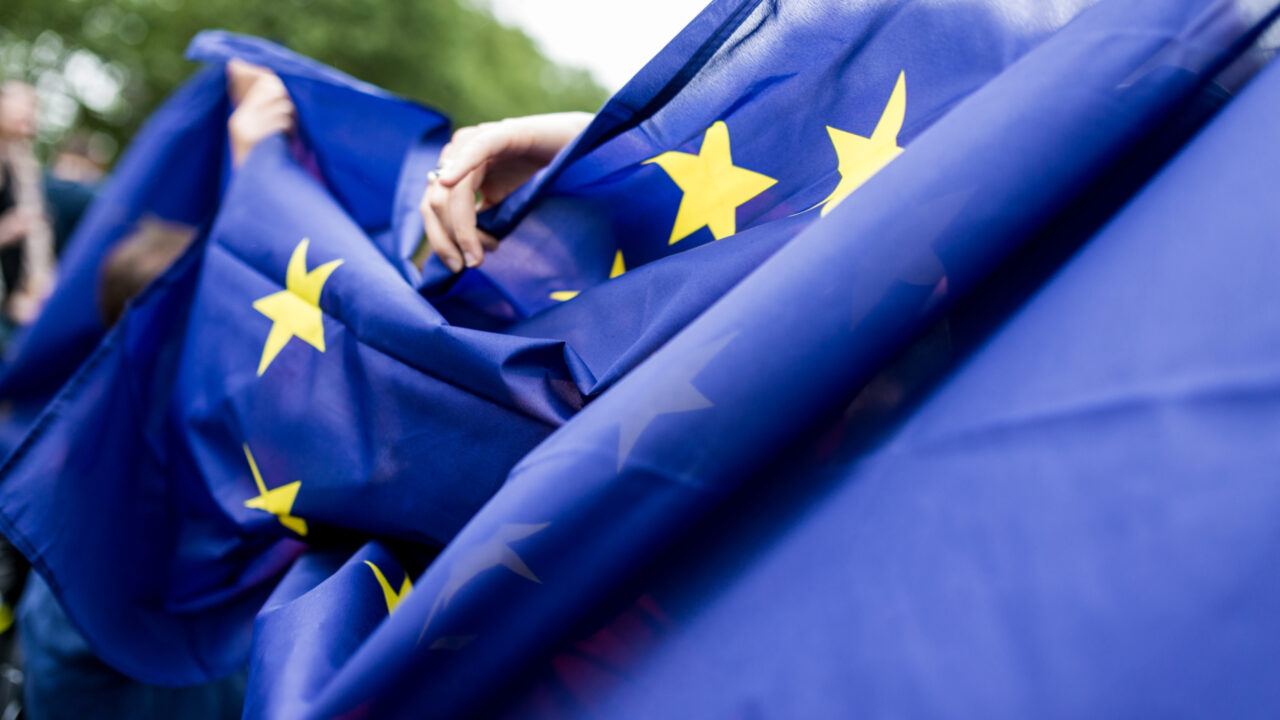The true value of European sovereignty
Putin’s invasion of Ukraine has underlined the importance of European sovereignty. The EU should now invest boldly in its military capabilities, cyber-defences, energy independence, and economic resilience
On the morning of 24 February, we woke up to a different Europe. Russian President Vladimir Putin’s war of aggression against Ukraine has shattered the European security order. But the past few days have seen the international community, NATO, and the European Union stand firmly by Ukraine’s side – with the Ukrainian struggle for democracy and self-determination guiding their response.
The West’s recent packages of sanctions on Russia and arms deliveries to Ukraine are an unambiguous response to Putin’s ruthlessness. He has encountered a united West. And instead of a timid and divided Europe, he is confronted with a union that is determined and quick to act. Putin’s cruelty has only succeeded in showing Europeans how valuable this union is – for their peace, freedom, democracy, and prosperity.
However, the EU now needs to invest in its strategic sovereignty, its ability to act, and its resilience. It should pay particular attention to the following four areas.
For the EU, an important lesson of this war will be that these investments need to happen quickly
Firstly, the EU needs to increase its military capabilities for the purposes of defence and deterrence. But the union should not make the mistake of investing solely at the national level. On the contrary, the aim should be to create as many synergies as possible through joint procurement and with a focus on interoperability. To do so, EU member states should jointly identify where their military capabilities are lacking, by building on the ongoing Strategic Compass initiative and the Coordinated Annual Review on Defence. The implementation of the resulting measures should be collaborative and should not merely address national capability gaps. The effort would produce a European arms industry that would require common export controls. These controls would be based on the position the union adopted more than ten years ago, during the previous French presidency of the Council of the European Union.
Secondly, the EU needs to invest in its security in the cyber domain. For years, Russian trolls have engaged in cyber-warfare using disinformation, fake news, and even deepfakes. The war on Ukraine is no exception. Russian actors are trying to weaken Ukrainian society with disinformation and attacks on digital infrastructure. Therefore, the EU needs to invest heavily in its defences against hybrid threats and in the technological independence of the union’s digital infrastructure.
Thirdly, energy policy is security policy. Therefore, the EU should allocate funding to enable a move towards energy independence. Europe’s dependence on fossil fuel imports means that it is vulnerable to blackmail. And Putin is using revenues from gas and oil exports to EU member states to finance his invading army. For the EU to establish its energy sovereignty, it will need to invest in renewables, green hydrogen, and rapid industrial decarbonisation. This is another process that will be quicker if member states work together. Therefore, it will be necessary to increase investment in transnational energy infrastructure and the green transformation of industry.
Finally, while Putin’s war has unpredictable economic costs for the EU, it is certain to cause financial damage to many member states, companies, and citizens. If the union is truly serious about its sovereignty, it should be able to mobilise financial support in exceptional circumstances such as these. For example, it could employ further packages of sanctions or punitive tariffs on Russia. And European sovereignty requires joint efforts to safeguard access to critical raw materials and global supply chains. This would help to strengthen the resilience of the single market and facilitate decisive action by EU leaders.
For the EU, an important lesson of this war will be that these investments need to happen quickly. This would also send a signal to rivals such as China that the EU is not only an economic power – it is also a geopolitical actor that knows how to use its strengths to assert its values and interests.
A sovereign and safe Europe will not come for free. The EU needs to invest vigorously in a capable and defensible union – and it needs to do so now.
Franziska Brantner is an ECFR board member and has been a member of the Bundestag since 2013. In 2021 she was appointed parliamentary state secretary at the Federal Ministry for Economic Affairs and Climate Action.
This article was first published in German at Zeit Online.
The European Council on Foreign Relations does not take collective positions. ECFR publications only represent the views of their individual authors.



